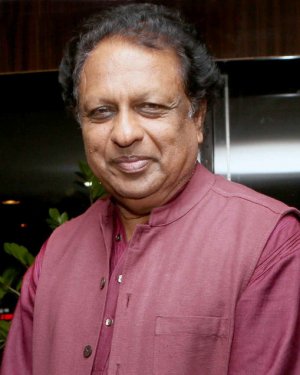
Time for Optimism without Triumphalism
The Masood Azhar saga, which should have been treated as a routine matter to be decided on the basis of evidence of terrorism around the globe, was turned into a major bilateral issue with India by China merely by delaying a decision as a measure of shielding Pakistan and countering India. Ever since Azhar was released from Indian custody in 1999, India had given considerable evidence to the UN that he had presided over a terror empire, which was behind many of the terrorist attacks across continents. The Chinese decision to drag on the negotiations on this issue resulted in concessions not only to Pakistan, but also to China on such an important matter as the BRI. China relented in the end as though it was responding to international pressure, but in reality it was a calculated diplomatic move in which China was as much a winner as India, Pakistan and the international community. As the details of the negotiations emerge, we will know more about how China orchestrated its moves to its own advantage.
India dealt with the matter patiently, particularly after it became clear that it had the support of the international community behind it even though it was under pressure to close the matter before the polling ended in the Indian elections. India kept an eye not only on Pakistan, but also on China and the US as its diplomats, notably Foreign Secretary Gokhale and Ambassador Syed Akbaruddin engaged the world. As I wrote to a friend when I heard the news on May 1 in New York, our mood should be one of “celebration without jubilation, optimism without triumphalism and hard work without expectation of breakthroughs. If China has moved an inch towards India, it may have moved a few yards toward Pakistan.”
Pakistan made an effort to save its face by claiming that the main obstacle to designating Azhar as a terrorist was the link India tried to establish between Azhar and the Pulwama attack. Pakistan stated that it agreed to the listing after removing "politically motivated attempts" to link the issue with the Pulwama attack, a formula that may have been worked out during Imran Khan’s visit to Beijing just before the change in the Chinese position. The Ministry of External Affairs responded by playing down the absence of any reference to Pulwama in the decision. This was actually removed at some stage in the negotiations, but the aim of the listing is tagging him a global terrorist, it is not exactly a bio-data, the Ministry said. "The Pulwama terror attack did play a role in the listing of Masood Azhar as global terrorist," the spokesperson Raveesh Kumar said. But the designation is not based on any specific incident. Rather, it is "on the basis of evidence which we have shared with the members of the sanctions committee linking Masood Azhar to several acts of terror," he added. Diplomacy is, after all, the art of the possible.
Having chaired two committees of the Security Council, one on an arms embargo against South Africa and the other on Article 50 of the UN Charter, I know how frustrating it is to see how ineffective their deliberations are and what little these committees achieve. Like many other decisions of the UN, the listing has only a symbolic value, though it is mandatory for all countries to impose a freeze on Masood Azhar's finances and assets, a travel ban and an arms embargo. As long as he is free in Pakistan under the protection of the armed forces, all his operations would continue in the names of others. JEM was listed long ago as a terrorist organisation without it having any impact on its global operations. On the other hand, some believe that the listing carries deep diplomatic, geopolitical and political impact. According to them, the Modi Government has been able to strike a balance between its effort to pressurise China by aligning with other world powers and maintain an equilibrium in the Sino-Indian relationship.
After the listing, the US Secretary of State Mike Pompeo took the entire credit for the US in a tweet: "Congrats to our team @USUN for their work in negotiating JEM's Masood Azhar's #UN designation as a terrorist. This long-awaited action is a victory for American diplomacy and the international community against terrorism, and an important step towards peace in South Asia". No word about apparent relaxation of tensions between China and India on this account. The fact that three permanent members including the US weighed in on this matter was significant for China. But I have been searching the pages of the ‘New York Times’ in the last two days for even a mention of the “US victory.”
The expectation that the closure on the Azhar issue will lead to another Wuhan and normalisation of relations with China is not realistic. China may not have pushed the demands put forward by Imran Khan such as a resumption of dialogue and resolution of the Kashmir issue, but it pushed India into a neutral position on BRI at a time when the whole world caved in to Chinese wishes. India’s position can only be tactical as our stakes are high not only on the sovereignty question, but also on the whole concept of Chinese hegemony. The formidable issues that remain on the long list of Indian grievances cannot be wished away or resolved with the Chinese tendency to measure time in terms of ages. The Azhar issue was simpler than the rest, but the fact that it took China ten years to concede even a symbolic win for India should be another lesson for us
